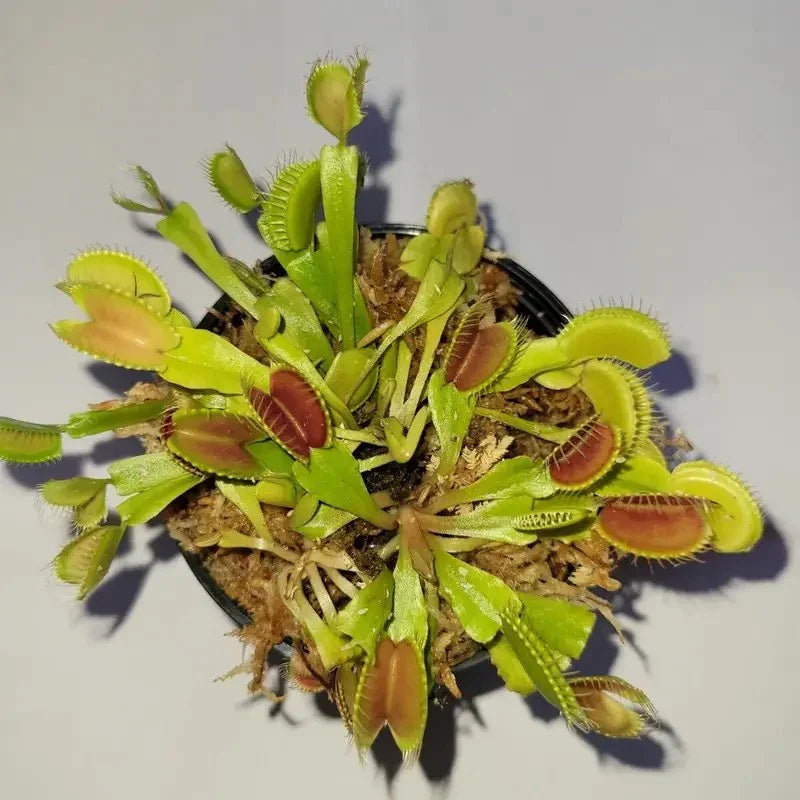Ships from Wilmington, North Carolina, USA
3 Small Live Venus Flytrap Plants – Dionaea muscipula
3 Small Live Venus Flytrap Plants – Dionaea muscipula
Couldn't load pickup availability
Add an exotic touch to your home or garden with Live Venus Flytrap Plants (Dionaea muscipula) – one of the world’s most fascinating carnivorous plants. Each order includes 3 small, healthy Venus Flytraps, about the size of those shown in the pictures (grown in 3-inch pots or larger).
These flytraps are hardened off and ready to grow, making them simple to care for. Unlike fragile greenhouse specimens, they do not require humidity domes or year-round tropical conditions. Place them near a sunny window or outdoors in the right season, and watch them thrive while naturally trapping flies and insects.
🌟 Key Features:
-
Carnivorous Plant Wonder – Unique trap-like leaves catch flies and other small insects.
-
Live & Healthy – Receive 3 small but hardy flytraps, already acclimated.
-
Easy to Grow – No humidity dome or greenhouse required.
-
Fun & Educational – Great for kids, collectors, and plant lovers.
- Compact Size – Perfect for sunny windowsills, desks, and indoor displays.
🌱 Why Grow Venus Flytrap Plants?
- Fascinating carnivorous plant for your home or classroom.
- Natural, eco-friendly insect control.
- Perfect conversation starter and gift for plant enthusiasts.
🌿 Growing Tips
-
Soil: Use nutrient-free soil mix (sphagnum moss & sand or perlite).
-
Water: Only use distilled, rain, or reverse osmosis water – never tap water.
-
Light: Provide full sun (outdoors) or 6+ hours of bright light indoors.
-
Dormancy: Allow plants to rest in cooler temps during winter for long-term health.
- Feeding: Outdoors, they’ll catch insects naturally. Indoors, you can feed occasional small bugs (never fertilizer).
❓ Frequently Asked Questions (FAQ)
How many plants will I receive?
You’ll receive 3 small but healthy Venus Flytrap plants, ready to grow.
Do Venus Flytraps need high humidity?
No! These are hardened off and thrive indoors by a sunny window without humidity domes.
Can they grow indoors year-round?
Yes, they grow well indoors with bright sunlight but require winter dormancy for long-term health.
Are fertilizers needed?
No. Venus Flytraps get nutrients from catching insects. Fertilizer will harm them.
Where to Buy Venus Flytrap Plants for Sale?
At Seeds World, we offer live, healthy Venus Flytrap plants (Dionaea muscipula) with fast U.S. shipping, ready to grow in your home or garden.
Share






